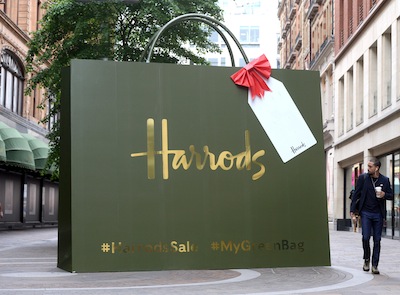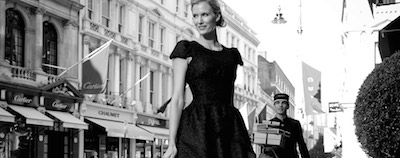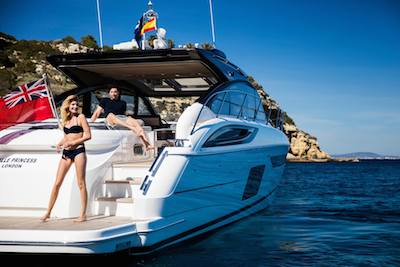The pound’s drop to its lowest valuation in decades following the United Kingdom’s decision to leave the European Union is already affecting international travel plans.
Seeking what equates to discounted luxury goods and hotels, travelers from other nations are showing increased interest in trips to Britain, while U.K. citizens are expected to opt to remain home rather than traveling to locales where their money will not go as far. Despite a time of political and economic uncertainty in the U.K., signs point to a boost to the country’s tourism industry, at least in the foreseeable future.
“In my view the Brexit currency fluctuations are expected to attract travelers to the U.K. as favorable exchange rates will help make their shopping experience attractive short term,” said Nadejda Popova, Travel Project Manager at Euromonitor International. “Already we are seeing investors from Russia, Middle East and Asia keen to purchase properties in the country following the Brexit vote.
“When concerns travel plans I think it all depends which markets these affluent travelers come from and also what will be the outcome of the negotiation between the E.U. and U.K. regarding the terms of the exit from the E.U.,” she said. “One major area which could impact travel from European countries will be if U.K. leaves the Open Skies Agreement.
“However Brexit could impact the image of Britain as an open market for tourists and businesses long term which could lead to a reassessment by foreign investors of their long term strategies in time of uncertainty in this market.”
Stay or go?
Immediately following the Brexit vote results, the pound fell to $1.32, the lowest it had been in 30 years (see story). Before the vote, HSBC predicted that the pound, trading at $1.28 as of July 6, could fall as low as $1.15.
Euromonitor has projected a 2 percent decrease in GDP up until 2020 based on Brexit, surmising that it will be years before Britain returns to pre-Brexit numbers.
With this currency shift, goods are essentially discounted anywhere from 5 to 20 percent. On luxury brands that as a rule do not mark down merchandise, this is a chance for clients to get items for hundreds or thousands of dollars less, presenting a strong incentive to travel to make a purchase.

Harrods’ #MyGreenBag 3D installation, photo credit: Anthony Harvey of Getty Images
For instance, Bloomberg noted that a Cartier watch originally priced at $169,000 in France would be $154,000 in the U.K., creating a $15,000 discount.
“Affluent international travelers to London and the U.K. near term will reap the benefits of the sharp drop in the value of the British currency,” said Marie Driscoll, CEO and chief consultant of Driscoll Advisors, New York. “Those without summer/fall travel plans may opportunistically choose this destination and enjoy entertainment and theater, luxury hotels and shopping at ‘bargain prices.’
“Yes the wealthy enjoy a good bargain too, and U.K. tourism is likely to increase, which in turn, will likely lift sales of luxury brands at high-end retailers and mono branded stores in the U.K.”
An AB Property Marketing report pointed out that travel sites such as Kayak, TravelZoo and the China-based Ctrip have all noted sharp increased searches on travel to the U.K. IAG, which owns British Airways, has also said it expects increased tourists flowing into Britain.
London is currently the top European city for inbound tourism, and this piqued interest may push it even further ahead of other destinations.
However, Euromonitor forecasts that based on previous economic fluctuations, such as the recession, German and U.S. travelers may stay away. It has revised its predictions for the top 20 nations for inbound tourism to the U.K., saying 5 percent less people will travel there over the next five years than previously expected.

Image courtesy of Claridge’s Hotel
The U.K. has the potential to take advantage of what may be an influx of travelers in the near future.
Now that it has left the E.U., which eliminated duty-free within its borders, Euromonitor points out that Britain has the possibility of opening up tax-free shopping again. Since 1999, duty-free has only been made available to those traveling from the E.U. to nations not within the union.
Ms. Popova suggests that trade voice its position to the government as policies are being made surrounding the exit from the E.U., as certain decisions including the APD’s fate in the U.K., the VAT and the expansion of Heathrow will have a great impact on business.
“[For] retailers the main concern will be associated with macro-economic factors, such as the strength of the pound, which could have an impact on import prices and ultimately consumer prices long term,” Ms. Popova said.
“I would expect that many luxury brands will be trying to reassure clients and investors in time of complexities, higher costs due to increased trade barriers which will directly impact import duties and taxes for products produced in E.U.,” she said. “I would also expect many travel and luxury brands relocating their headquarters to other E.U. markets.”
Homeward bound
British travelers are an important driver of shopping tourism.
U.K. residents made 65.7 million international trips in 2015, up 9 percent from the previous year. Between April 2015 and March 2016, U.K. outbound tourists spent 12 percent more than the previous year, with purchases totaling 40.2 billion pounds.
When traveling, some of the most popular destinations for British tourists are Spain, France, Italy and the U.S. While not top of the list in popularity, the U.S. boasts the longest stays, with an average of 14 days.
For the middle of the affluent market, those with plans already in place are unlikely to alter them now, even though they will be getting less euros for their pounds, said Anthony Lassman, co-founder of Nota Bene. Instead, they may decide to cut back in other ways, such as ordering less expensive wine at dinner or shopping less.
“Overall, Brexit is not good for the luxury industry with the uncertainty it engenders, including potential exits of other Eurozone members,” Ms. Driscoll said. “Uncertainty equals reduced consumer confidence, a necessary ingredient supporting luxury purchases and U.K. luxury shoppers will opt to postpone luxury purchases both domestically and on their travels.
“According to GfK, U.K. consumer confidence is at its lowest level since 1994, in a Brexit Special reading,” she said. “On a global macro level, most investment banks and consultancies have lowered GDP expectations for the UK, US and the EuroZone for 2016 and 2017.”
The super-wealthy, on the other hand, are an insulated population who are unlikely to alter their plans based on currency movements. United Kingdom-based secured lender Borro is predicting hard luxury assets, including art and classic automobiles, to be tangible stores of wealth in the aftermath of the European Union referendum (see story).

Image courtesy of Princess Yachts
While others may feel they are losing, currency and stock traders are playing the market and making fortunes.
“At this very moment in time, the affluent and the super wealthy are focusing on, what are they doing with their investing and wealth management while this situation is unfolding, and waiting to see next steps,” Mr. Lassman said.
“But the wealthy move very fast,” he said. “They don’t need to be tied to an office. With communication today, if somebody is even on a plane, on a yacht, they’re in contact, they’ll be working while maybe their wife is vacationing.
“So while I certainly don’t support the argument that people won’t be vacationing because of what has happened. I think it’s just that maybe more of their vacation days will be spent with their advisors and with their financial teams, etc., but they’ll still be traveling.”
Since these customers will still be venturing to Paris and Milan or Saint-Tropez and Portofino, making it important for brands to establish pricing consistency. When at their destination, the wealthy will still be interested in spending on experiences or merchandise they cannot get anywhere else.

Dolce & Gabbana’s limited-edition Portofino collection
“If the super-wealthy are in these places while they’re on vacation relatively relaxed, they will still carry on buying,” Mr. Lassman said. “It is the most insulated sector of the market.”
It is still too early to tell what the long-term impact of Brexit will be for luxury tourism and shopping, but in the meantime, brands can work to retain and attract clientele.
“The travel industry should point out the incredible values a trip to the U.K. offers in the aftermath of the Brexit decision,” Ms. Driscoll said.
“In times of uncertainty, heritage luxury brands and products that hold their value become more attractive than the newest trend,” she said. “Fine jewelry and watches, traditional stores of value, could see a lift in sales, while ready-to-wear and accessories see another year of soft sales trends.
“Marketing that incorporates tradition and heritage underscores continuity, a salve for uncertain shoppers which should help drive conversion at point of sale. For luxury brands, maintaining brand and pricing integrity is paramount.
“Stay the course. This too shall end!”
from Travel and hospitality – Luxury Daily https://www.luxurydaily.com/brexit-seen-benefiting-uk-tourism-as-travelers-seek-value/
via Your #1 Source to Finding Luxury & Designer Goods, Handbags & Clothes at or Below Wholesale: Click Here.

No comments:
Post a Comment